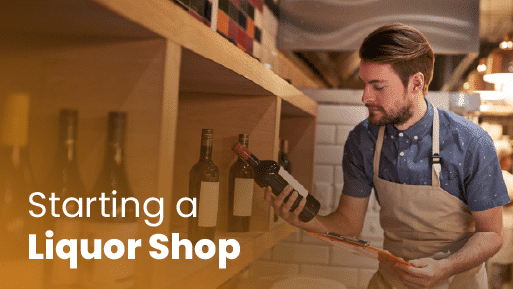Like starting any business, opening a successful liquor store is a monumental task. There are many factors to keep in mind to ensure that your retail business is a success. Breaking down each of these factors into more manageable pieces is important for this success, as well as for your own sanity.
From determining your storefront logo to navigating local and federal laws, here’s a list of 14 major items to consider on how to start a liquor store. With the proper framework and good taste, the booze will fly off your shelves.
Key Takeaways: Opening a liquor store
- Thorough Industry Research: Before opening a liquor store, understand local regulations, market demand, and competition.
- Comprehensive Business Plan: A detailed plan outlining objectives, market analysis, financial projections, and contingency strategies is crucial for success.
- Strategic Location Selection: Choose a visible and accessible location that aligns with target demographics to attract the right customers.
- Legal Compliance: Ensuring compliance with local, state, and federal laws and seeking legal advice upfront will prevent costly fines and suspension of business licenses.
1. Conduct Industry Research
Before embarking on opening a liquor store, conduct thorough industry research. Aspiring entrepreneurs must understand local regulations, market demand, and competition.
Regulations vary widely, from licensing requirements to zoning laws (Examples such as Florida) and more. Getting familiar with all legal aspects is a must.
In addition, analyzing market demand involves assessing targeting audiences. Consider demographics, consumer preferences, and purchasing behaviors. Identify potential competitors and their offerings to inform merchandising strategies and pricing decisions.
Studying more general industry trends can also be helpful. What kinds of drinks are becoming more or less popular? Shifts towards craft spirits or organic wines may inform your product selection and marketing strategies.
Ultimately, comprehensive industry research lays the foundation for informed decision-making.
2. Create A Business Plan
Crafting a thorough business plan is essential when opening a liquor store. It serves as a roadmap, guiding entrepreneurs through the various stages of launching and growing their liquor store venture.
The plan should outline objectives, strategies, and financial projections. This includes securing funding from investors or lenders.
Here are the most important pieces to include:
- Start by outlining a clear vision and mission statement. What are your objectives?
- Define your target market. Conduct thorough market research to understand consumer preferences and local competition.
- Determine your store’s unique selling proposition and develop a pricing strategy accordingly.
- Outline your store’s organizational structure, including staffing needs and roles.
- Detail your marketing and advertising plans. Determine how you will you attract and retain customers.
- Include information on logistics, such as supplier relationships and inventory management.
- Summarize all financial projections. Include startup costs (E.g the cost of getting a license such as in California, Florida or Texas), revenue forecasts, and break-even analysis.
- Include contingency plans for potential challenges and risks.
- Regularly review and update your business plan to adapt to market changes and optimize performance.
3. Find Your Location
Demand for alcohol is generally inelastic; people drink equally in good times and bad. But profit margins are often low. Making sure your location is accessible and visible is critical. As previously mentioned, research the demographics of your town or neighborhood.
Look into the average age, marital status, and income of residents. Are you looking to get foot traffic by being near a train station in a dense city or town? Or will you be more of a sizable destination with a parking lot and more specialty products?
These factors will inform your location decisions. Ensure that your location aligns with the rest of your plan.
4. Lawyer Up
Staying on the right side of the law is always a central concern. However, it is particularly paramount when distributing alcohol. Many laws regulate its sale and consumption. And the laws span city, county, state, and federal jurisdiction.
For example, opening a liquor store in NYC will be different than doing so in Houston or Los Angeles. Prohibitions and limitations depend on the state. They may include certain types of alcohol, hours or days of operation, or the number of stores with licenses.
Spending the money on legal advice upfront will help you avoid accidental excessive costs later. Fines can be steep and easily shut a business down.
5. Register with the Alcohol and Tobacco Tax & Trade Bureau
The ATF and TTB have done away with the special alcohol tax. However, you still need federal registration to sell or distribute alcohol. Local registration varies from state to state and county to county.
Take care to apply for the necessary licenses well in advance of your target opening date.
6. Sales and Cost Projections
This will also involve some market research. See what neighboring liquor stores are selling. How much are they moving? What are their prices?
Use that information to narrow in on your target margins and pricing strategy. Liquor margins are fluid from product to product. Make sense of your products’ prices with the proper amount of research to increase your sales in the backend.
7. Liquor Store Start-Up Financing
This may not be necessary for everyone, but most new small business owners will take out a business loan or two. Fully stocking a liquor store requires a substantial amount of capital since they must carry a large amount of inventory.
Demand for alcohol is generally constant. Hence, favorable lenders should be easy to find if you present a solid business plan.
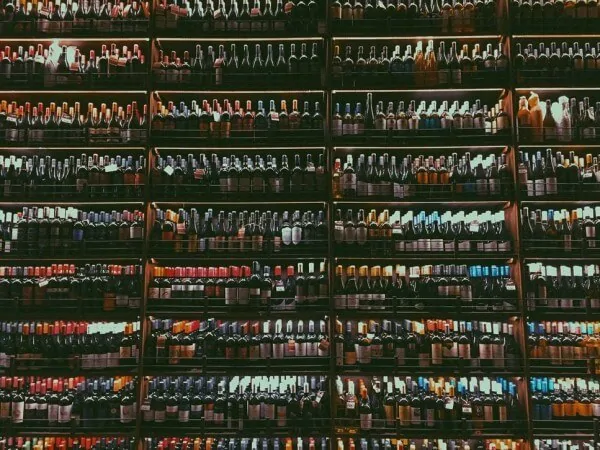
8. Select Your Inventory
As mentioned above, inventory will be a major expense when starting a liquor store. Your merchandise will define the kind of liquor store you operate, so choose wisely.
Start by stocking inventory that will move quickly. Cash flow will allow you to invest in various directions. Using reliable inventory management tools for liquor store operations helps you track stock levels efficiently while keeping diverse products on your shelves to attract more customers to your new liquor store.
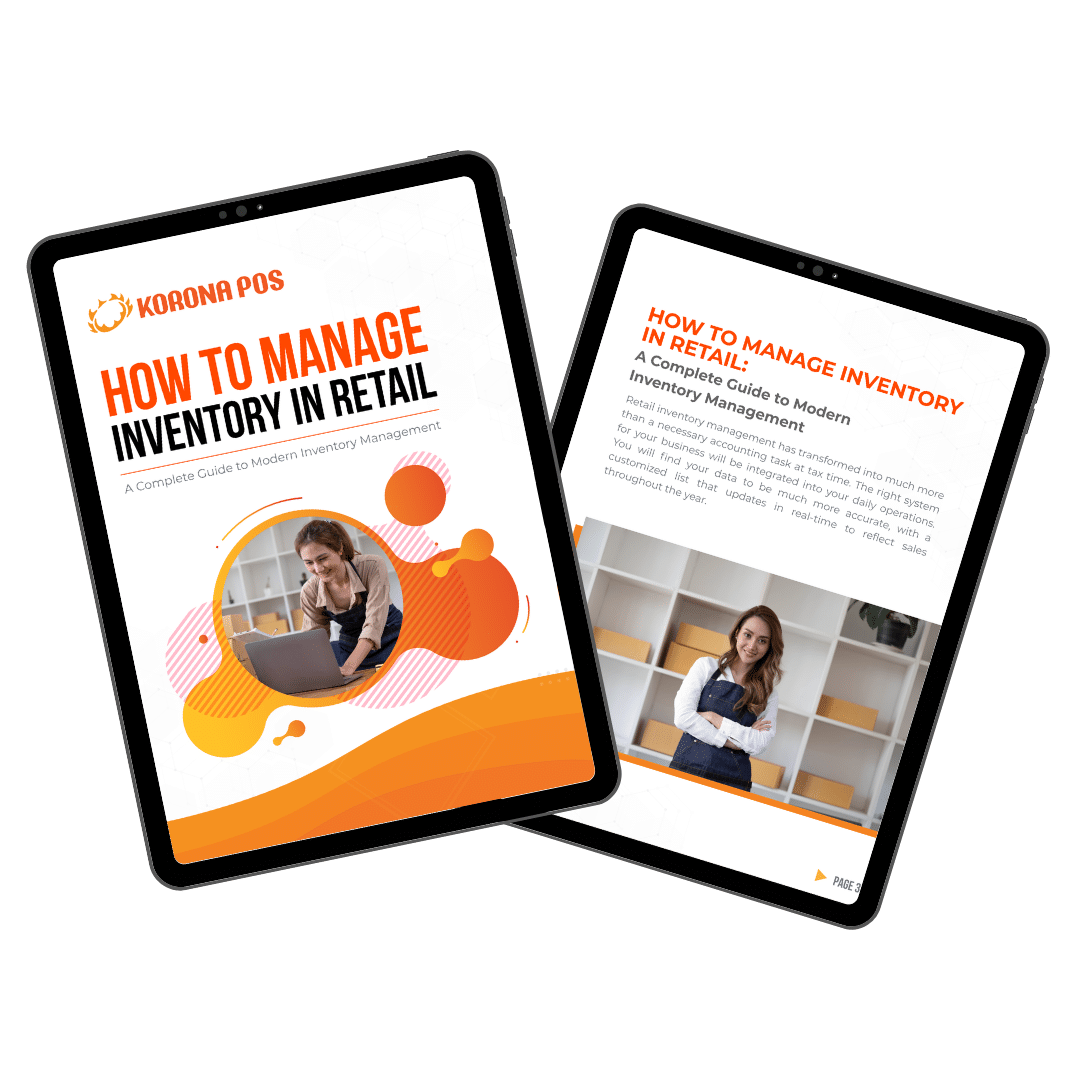
Learn how to manage your inventory effectively with this free eGuide.
9. Additional Products
Give some thought to items aside from alcohol that you’d like to sell in your liquor store. What types of mixers would you like to include? Cheese and crackers or other snacks? Glassware?
Items like these, called impulse items, are a fun way to make your store stand out. They also generally have a higher margin than liquor itself, so additional sales here will help your bottom line. Suggestive selling with cross-selling and bundling products is an important strategy for any business, but especially for liquor shops.
10. Liquor Store Layout
A good liquor store has a thoughtful and well-designed structure to the store itself and the placement of products. Set a path for customers to follow and research pricing and shelving strategies.
Pay plenty of attention to your POS marketing strategies, too. This area is a great spot to place products that pad your average transaction value.
11. Hire a Competent Staff Early
Get people on board before opening. Look for proactive and trustworthy associates.
Save yourself stress and time by investing in your staff at the beginning. Many customers also look for suggestions and direction in their local liquor store. Your employees can help you differentiate your store from the rest with great customer service.
12. Plan Events and Partnerships
Cheese and wine tastings are always a fun way to increase awareness. Bring in product representatives or sponsors to educate your staff and your customers on some of your inventory.
Look into ways to get your store noticed in the community. Sponsor a softball team, go to farmers markets and festivals, or team up with neighboring businesses.
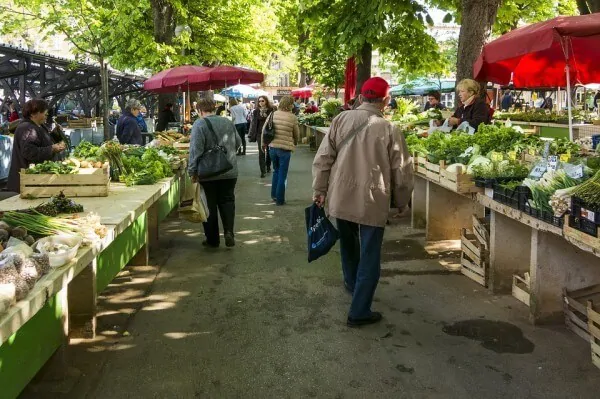
13. Get Online and Start a Website
It can be overwhelming, but creating a basic online presence has never been more necessary. Plus most of it is free.
Social media marketing can be highly effective. Create profiles on all major platforms and start a presence on review sites like Yelp and Google. Get sleek business cards and start an email list.
Learn some local SEO basics for retail stores as well. That way, you can get the most out of your website. Set up a basic Google My Business listing too. This will gain you more exposure for those searching for liquor online. There are affordable services, like mapAds and Near St. that can even augment your presence here and help your business get recognized in relevant searches.
Liquor delivery is increasingly popular and offers more flexibility. You can provide the delivery service or partner with third-party companies like Postmates or DoorDash. The average industry growth for online alcohol delivery from 2015 to 2020 was 12.1%. Take advantage of this trend.
14. Choose Your Point of Sale System
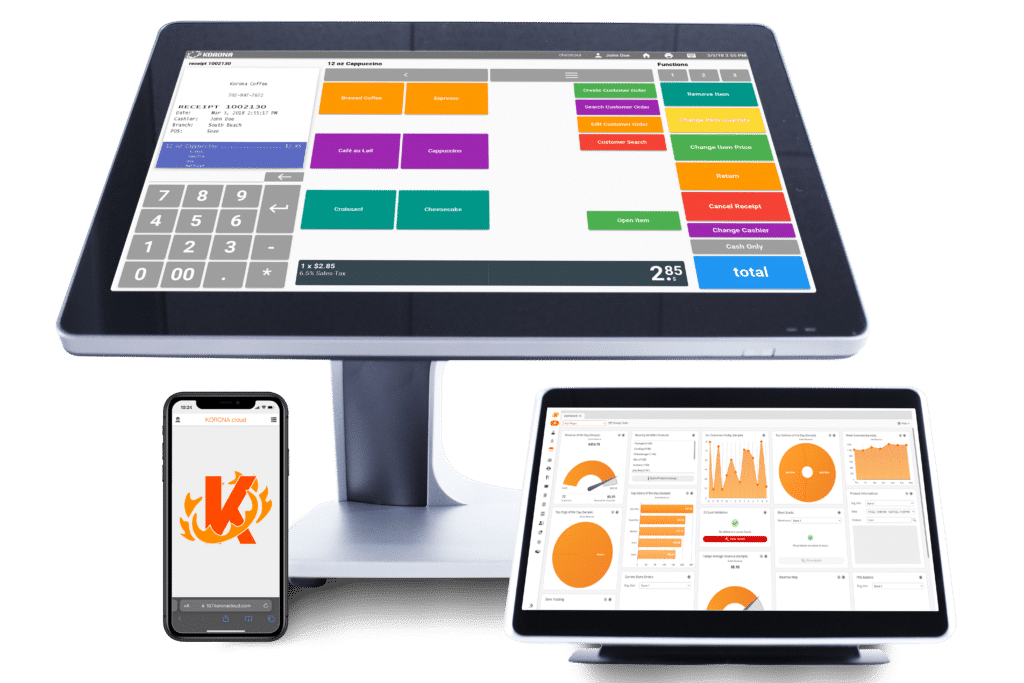
A great liquor store POS system can go a long way in helping your business succeed. Inventory management is perhaps the most essential feature of a liquor store. But your point of sale can also help prevent theft, create a customer database, manage payroll, and integrate with loyalty programs.
Check all reviews, especially for customer support, before you decide on a provider.
KORONA POS is very user-friendly. You can customize the interface to conform to your business needs. Customer Service is in the United States, always accessible, and always awesome. We love that we can fit it into our scale of business and grow with it.
-Darlene P.
Why Open a Liquor Store?
Opening a liquor store can be lucrative. Demand for alcoholic beverages is consistent and steady. Alcohol sales presents a diverse customer base and a wide range of products. A liquor store offers opportunities for differentiation and specialization, catering to specific consumer preferences.
Liquor retailing is also relatively resilient to economic downturns, making it a potentially stable business venture. Liquor store owners can adapt and innovate by fostering supplier relationships and staying abreast of industry trends. This will help capitalize on evolving consumer tastes and preferences, further enhancing profitability and sustainability.
How Much Does it Cost to Open a Liquor Store?
The cost of opening a liquor store varies depending on location, size, and inventory selection. Startup expenses typically include licensing fees, any down payments, and property purchase costs. Plus, there will be interior renovations, equipment purchases (such as coolers and shelving), initial inventory, and marketing expenses.
On average, startup costs range from $100,000 to $500,000. Aspiring business owners must also consider ongoing costs. These include utilities, lease or mortgage payments, insurance, staffing, and restocking inventory.
Conducting thorough market research and creating a detailed business plan will help entrepreneurs accurately estimate and budget these expenses – and also help plan for applying for an adequate loan when getting started.
How to Start a Liquor Store with KORONA POS
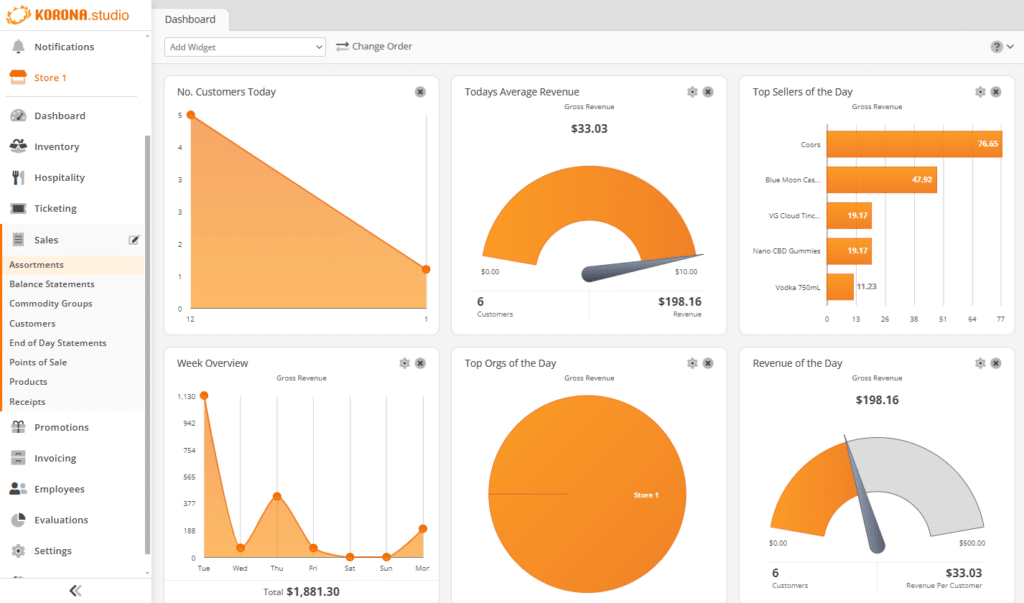
Opening a liquor store is an involved process. Luckily, choosing an excellent liquor store point of sale is easy. Our liquor point of sale system is in thousands of stores worldwide and is one of the best in the industry.
If you want to learn more about how our liquor store POS can help your small business, check out KORONA POS.


